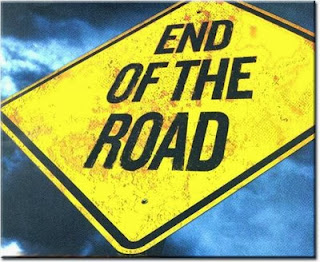 |
| Image: http://thankfulnessproject.ca/wp-content/uploads/2013/03/The-Journey-Ends.jpg |
I enjoyed doing the activities offered in this subject. When it came down to it, the blog posts were fun. Motivation for me was an issue this semester and as a result, I was behind for much of the time. Still, I enjoyed the forays into the Facebook group discussions, the occasional tweet when I replied to a fellow classmate, and of course reading the blog posts.
One post that garnered much attention was my Kevin Rudd mashup image, and I believe it symbolizes the topics I’m best at: the idea of
the information professional with social networking connections, my limited yet
well thought out art abilities, and my knowledge of politics. In a subject like
this, largely reliant on improvisation and getting a feel for programs and
tools used in the industry, it allows for experimentation.
My blog posts I’m proud of. I think that in the rambling I
spluttered the occasional epiphany, and provided plenty of links to great
content. Which post did I like best? My favourite is definitely when I’m
writing about video games, and I believe the post combining video games with
the educative qualities that libraries could utilise was the most fun. I loved
exploring games of my childhood that introduced me to the famous historical
legends that school and kids books could only dream of conceiving.
The most informative post of mine was the final piece I
wrote on open data. I based my arguments on the Pirate Party’s copyright reform
that they kept available on their website, despite the political party not
being elected to parliament in the last election. I thought that open data was
a necessity in our present times, and especially so as a way for libraries to
keep further relevance in the information age. Collections and availability of
sources would be much better served if copyright restrictions were not as
archaic as they are now.
Personal Learning Networks was the overall topic for this
subject. While I’d established mine from semester one of this course, and my
networks on Facebook and Twitter have been running for a while now, I found new
peers and the friendships and learnings they gave I have been grateful for.
My biggest fear of this subject wasn’t the deadlines, nor
was it any of the actual writing; instead, the fear for me was the week when I
had to record a screencast. I’m always anxious of my voice and never used a
screen recording program. Thankfully, I
used Screencast-O-Matic, and while I’m still a little nervous about how it turned
out, at least I got it done. I listen to a lot of political and video game
commentators on YouTube who do voice-over Let’s Plays or political montages
while they discuss the topic. A pet want for me has always been to do something
like that at some point in the future, and that particular activity gave me a
little taste of it.
This has been a relaxing, fun journey and I’ve learnt more
about myself and those I’m doing this course with, as well as insights into
Personal Learning Networks, the information age, and the role of libraries.
The weeks I blogged on were:







